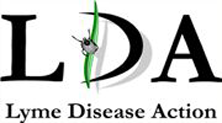In a further move to foster international cooperation, LDA arranged for one of IGeneX directors, Dr Jyotsna Shah, to come to RIPL this week to discuss testing for Lyme disease. The meeting improved everyone’s understanding and established a good working relationship for the first time.
- IGeneX understand now that CDC criteria for the number of bands required for a positive interpretation of immunoblots do not apply in Europe. European blot manufacturers specify either one or two specific bands for a positive result, whereas CDC require 6.
- RIPL and LDA now know why IGeneX tests are not FDA accredited – this is because the FDA insist on immunoblots in the USA using Borrelia burgdorferi strain B31. IGeneX studies have found an increased sensitivity when using antigens from strains B31 and 297 together.
- Normally, the studies on which strain choice might depend, and significant studies on sensitivity and specificity, would be published in peer reviewed journals. IGeneX have found that the political situation in the USA has made this very difficult.
- All three parties (RIPL, IGeneX and LDA) agree that the CD57 test is not a useful diagnostic marker for Lyme disease. IGeneX studies have found that not only do normal, healthy people often have a low CD57, but that this level fluctuates.
It has long been a puzzle to RIPL and LDA why many patients test negative in NHS blots but positive in the IGeneX blot. The European blots are designed for European infections, whereas the IGeneX test uses US strains only. In order to shed some light on this, possible plans for parallel testing of shared blood samples were discussed.
The discussions that took place do not yet mean that IGeneX test results will be accepted in the UK, but everyone felt this was a significant meeting and has laid the foundations for future collaboration.

 Printer Friendly
Printer Friendly